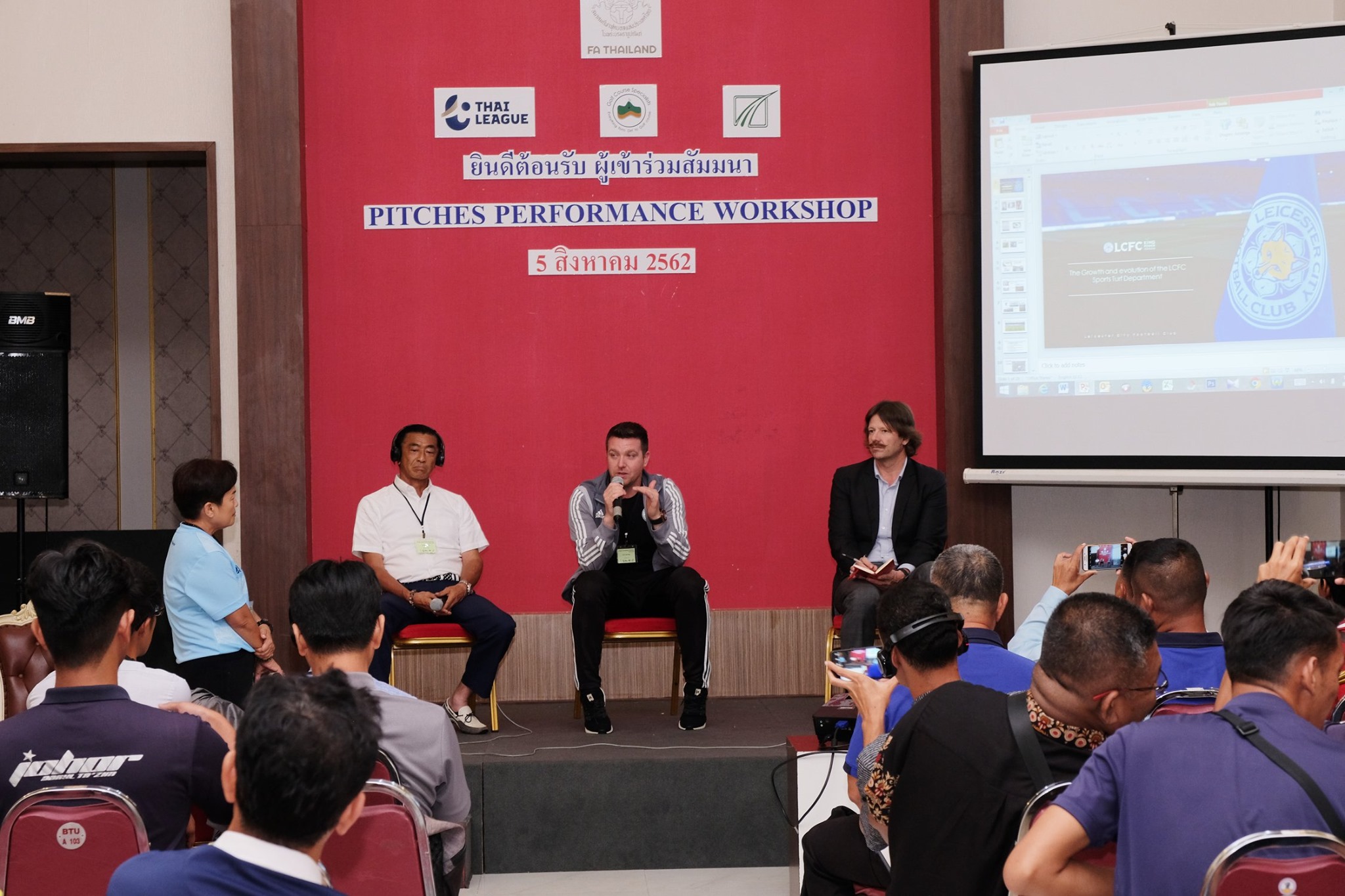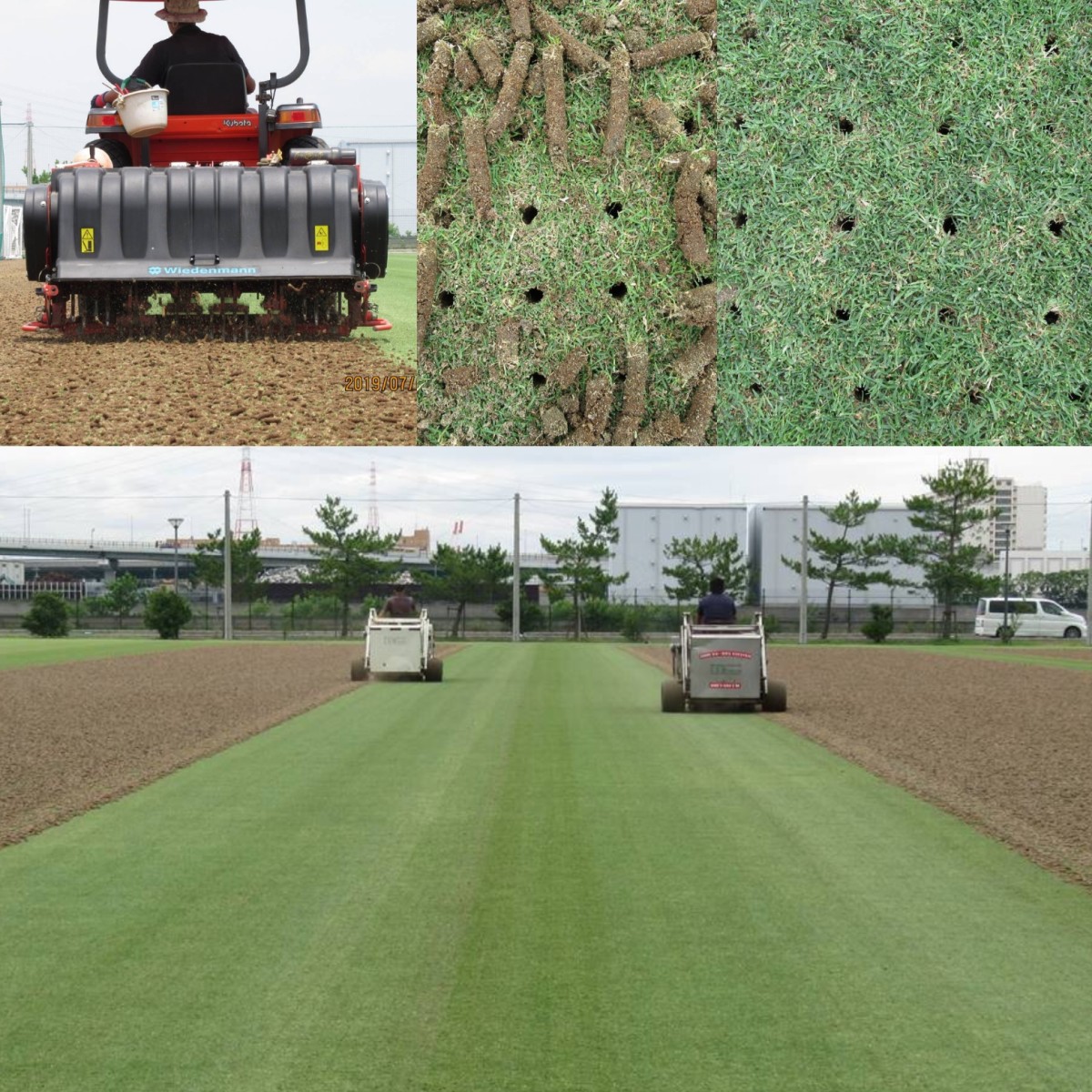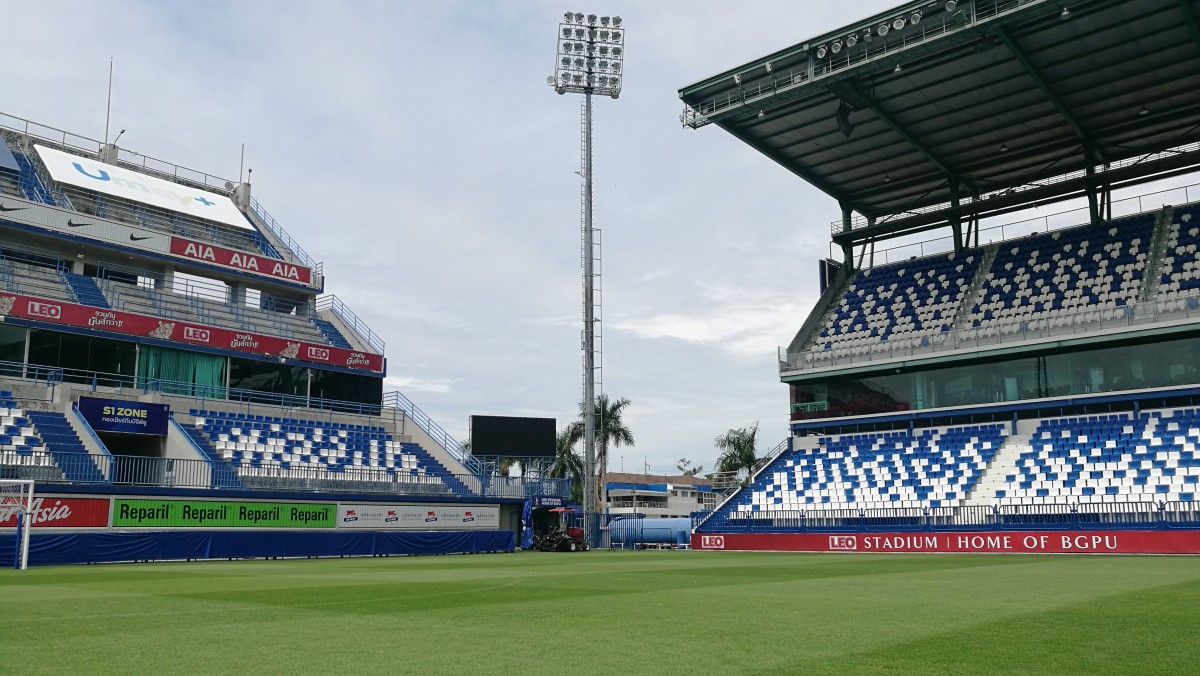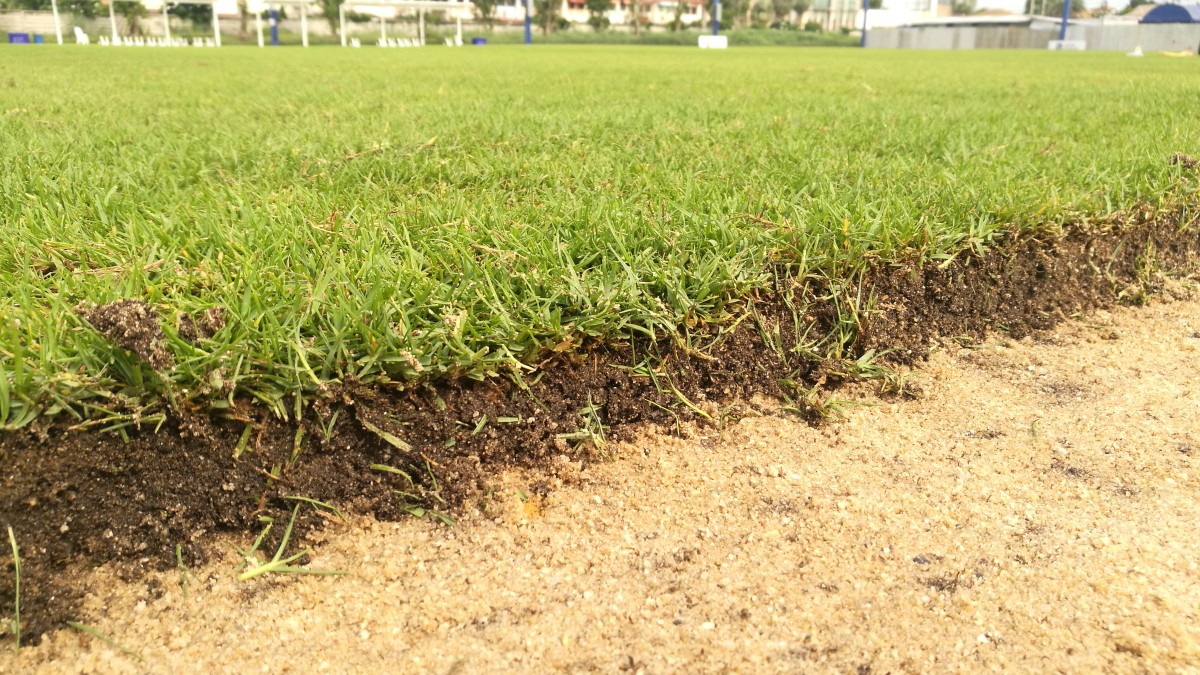I participated in a pitch performance workshop put on by the Football Association of Thailand and the Thai League.
 John Ledwidge answers a question during the FA Thailand & Thai League’s Pitch Performance Workshop on August 5. Photo by Boy Yothin.
John Ledwidge answers a question during the FA Thailand & Thai League’s Pitch Performance Workshop on August 5. Photo by Boy Yothin.
It was fascinating to hear from John Ledwidge, Head of Sports Turf and Grounds for Leicester City FC, about the work of his team. His first presentation was titled “Pitch Performance and Protecting the Assets,” discussing the consistency of surface that is produced and how that is accomplished, monitored, and adjusted. His second presentation on “The Evolution of the LCFC Grounds Department” provided an inside look at both the day-to-day operations of the department and the plans for the future as the new training ground is completed.
John’s description of his work made clear some differences between typical pitch construction and maintenance in Thailand, and the way such work is done at the Premier League level in England. He surprised everyone in the audience during the discussion when he was asked how many times a week he would typically mow the pitch. During this season, he said, 14 times. Cutting at 24 mm in the morning, typically, and then a dry cut in the afternoon at 22 mm.
 Nobuo Suzuki spoke about football and rugby pitch preparation and assessment in Japan, and showed these photos of the core aerification and cleanup of ‘Tifway’ surfaces in Osaka. Photos from Nobuo Suzuki.
Nobuo Suzuki spoke about football and rugby pitch preparation and assessment in Japan, and showed these photos of the core aerification and cleanup of ‘Tifway’ surfaces in Osaka. Photos from Nobuo Suzuki.
Nobuo Suzuki explained the measurements he makes in Japan to assess the pitch performance, and he described the work done to make sure the surfaces meet the desired standard. I enjoyed seeing his sequence of photos explaining the core aerification process, and seeing how clean the core sweepers leave the surface.
The seminar was organized by the team from Golf Course Specialists, and they’ve put together this photo album from the day with photos by Boy Yothin.
My first presentation at this workshop was Six things to get right for top quality turf in Thailand.
Then I shared the results of ball roll (rolled down a 45° ramp from a 1 m height) and ball rebound (dropped from a 2 m height) measurements collected from football pitches in central Thailand.
One of the things I discussed was the goal of consistent ball bounce and roll across the pitch. The best pitches in Thailand, like the seashore paspalum at Leo Stadium, have a low coefficient of variation in the set of measurements taken at multiple locations across the pitch.
 The new Leo Stadium, home of Bangkok Glass FC, has a high quality seashore paspalum surface.
The new Leo Stadium, home of Bangkok Glass FC, has a high quality seashore paspalum surface.
Of course, the grass isn’t perfect everywhere. Some pitches don’t invest enough in the required maintenance, and weeds can invade or organic matter can accumulate—rapidly in a tropical climate—to undesirable levels.
 A layer of organic matter has accumulated at the surface of this seashore paspalum pitch in Bangkok, leading to wet and inconsistent conditions.
A layer of organic matter has accumulated at the surface of this seashore paspalum pitch in Bangkok, leading to wet and inconsistent conditions.